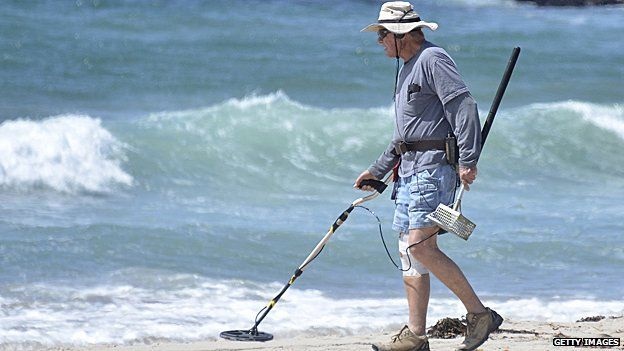
By ANDREW J. LUCA
Many of us pay close attention to those Antiques Roadshow stories of lucky homeowners who started a renovation project and found a stash of cash or a can of coins buried deep in a wall or tucked inside a vent.
Forgotten treasures left behind by a home’s prior owner is a wish come true for most but can be an interesting question of law for the Courts.
The age-old phrases “finders-keepers” or “possession is 9/10ths of the law” may not always apply and the results are often dependent on the treasure itself and where it was discovered.
Property Owners:
In New Jersey, finding items of value in your home or on your property belong to you if the law views those items as abandoned.
Abandoned property is property that the owner has intentionally waived ownership. Lost property, on the other hand, like many other states requires reporting of the find to authorities as well as the public.
New Jersey requires 120 days public notice once the reasonable effort to publicly notify has begun.
Naturally, the fortuitous party who discovered the loot wants it considered abandoned and thus “finders-keepers.”
Finding hidden treasure in the home you own is usually yours to keep under the law.
Rented Property:
What happens in those situations where renters accidentally put a hole in the wall and find old jewelry long since forgotten as evidenced by the mound of dust collected on it?
Or, what if a landlord gives permission for renters to store some of their belongings in an area of the basement which has been ignored and unused by its owner for years?
In those situations, the law would consider the find lost and a requirement to first notify the landlord would ensue. Found property of value does not always have to be excavated for ownership to change hands.
In the event a tenant vacates the premises leaving behind personal property, which could have value, the landlord must advise the tenant in writing and wait 30 days before taking possession. If the landlord mailed that notice to the prior tenant (Certified Mailing, Return Receipt is recommended), the landlord must wait a period of 33 days.
Public Property:
How about the metal detector wielding warriors strolling the beaches along the coastline looking for discarded trinkets or the weekend treasure hunters searching to unearth forgotten cargo of the Sindia or the George F. Skolfield shipwrecks?
The stretches of beach where these historical items might be found are publicly accessible land and are owned by either the state or the local municipality.
Who owns the discovery on this land if it’s revealed with the use of hand-held shovels and sifters?
While the items buried in the sand amounting to pocket change or rings usually belong to the finder (hats off to local metal detectorist, John Favano, who is often asked to find lost wedding or engagement rings to the relief of visiting vacationers), items of historical or cultural significance found on public land belong to the state or town and are typically donated to local historical societies who display such artifacts for community enjoyment and educational purposes.
Closing Out the Year:
Abandoned or lost riches found in your house or on your property is a tale that we would all like to tell. Traditionally, and especially at this time of the season, the wealth that our homes routinely give to us are the treasured memories created with family and friends throughout the year. Happy Holidays!
About the Author: Andrew J. Luca, Esquire is a co-founding member of the CKL Law Group, LLP and has been practicing Real Estate and Consumer Fraud law in New Jersey for nearly 20 years.







